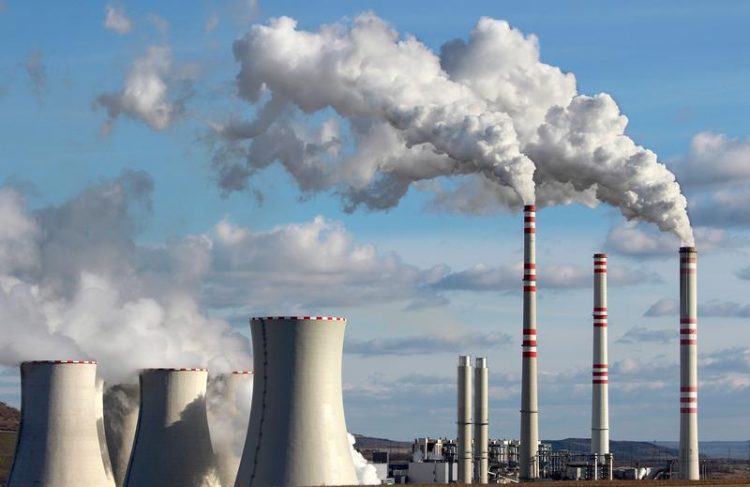Removing fossil fuel subsidies will not reduce CO2 emissions as much as hoped

Coal-fired power station emissions Kodda | Shutterstock
Fossil fuel subsidies amount to hundreds of billions of dollars worldwide, and removing them has been held up as a key answer to climate change mitigation. Unfortunately it is not the silver bullet many had hoped, IIASA-led analysis published in the journal Nature shows.
Removing fossil subsidies would only slightly slow the growth of CO2 emissions, with the result that by 2030 they would only be 1-5% lower than if subsidies had been maintained, regardless of whether oil prices are low or high. This equates to 0.5-2 gigatonnes (Gt/year) of CO2 by 2030, significantly less than the voluntary climate pledges made under the Paris climate agreement, which add up to 4-8 Gt/year and are themselves not enough to limit warming to 2°C.
“The reason for this small overall effect is two-fold,” says IIASA researcher Jessica Jewell, lead author on the paper. “First, these subsidies generally apply only to oil, gas, and electricity. That means that in some cases the removal of subsidies causes a switch to more emissions-intensive coal. Second, while these subsidies add up to substantial sums of money, the rate per unit of energy is not high enough to have a big effect on global energy demand, which would decrease by only 1-7% after subsidies are removed.” In addition, subsidy removal would not boost renewable energy use significantly, the team found. This is because it is generally cheaper to reduce energy demand than to substitute subsidized fuels with renewables.
Although the global effect on emissions is low, the impact varies between regions. The largest effects of removing subsidies were found in areas that export oil and gas, such as Russia, Latin America, and the Middle East and North Africa. In these regions, the emissions savings caused by subsidy removal would either equal or exceed their climate pledges.
Developing economies which are not major oil and gas exporters would generally experience much smaller effects of removing the subsidies. Some of the models used even suggested a rise in emissions for some regions, such as Africa and India, as a result of switching from unsubsidized oil and gas to coal.
Subsidy removal and the poor
The regional differences highlight one very important aspect of subsidy removal that needs to be taken into consideration: the impacts on the poor. Many fossil fuel subsidies were put in place to help those with lower income, and despite the fact that most of the money goes to the rich, the poorer you are, the more of your household budget comes from these subsidies, so their removal would have a much larger impact on daily life.
For instance, removing subsidies means that the switch to modern fuels may become out of reach for many poor people, the results show. As a consequence they are stuck using firewood or charcoal, which both emit more greenhouse gases and are damaging to health.
Fortunately, the highest numbers of poor people are concentrated in the regions where removal of subsidies will have the weakest effect on CO2 emissions. Removing subsidies in richer oil and gas exporting regions would therefore provide significantly greater emissions savings and have a less detrimental impact on the poor. This is facilitated by today’s low oil prices.
“The governments of oil and gas producing countries are already under pressure to reduce spending on subsidies as revenues shrink,” says Jewell. “This provides a unique political opportunity to remove subsidies in countries where it will have the largest effect on emissions and the smallest impact on the poor.”
Ultimately, these results do show benefits of removing fossil fuel subsidies, especially in certain regions, but care is needed for implementation. “We’re not saying: don’t get rid of subsidies, we’re saying that we need to be aware that it might have less of an effect than hoped, and it could have a disproportionally large effect on the poor,” says Keywan Riahi, study co-author and IIASA Energy Program director. “But well-designed policies can achieve subsidy removal without affecting the poor. A scheme being trialed in India, for example, removed subsidies on cooking gas in general but continues to support the poorest households through rebates.”
Reference
Jewell J, McCollum, D Emmerling J, Bertram C, Gernaat DEHJ, Krey V, Paroussos L, Berger L, Fragkiadakis K, Keppo I, Saadi, N, Tavoni M, van Vuuren D, Vinichenko V, Riahi K (2018) Limited emission reductions from fuel subsidy removal except in energy exporting regions. Nature.
The study received funding from the European Union’s Seventh Programme FP7/2007-2013 No 308329 (ADVANCE).
Media Contact
More Information:
http://www.iiasa.ac.atAll latest news from the category: Ecology, The Environment and Conservation
This complex theme deals primarily with interactions between organisms and the environmental factors that impact them, but to a greater extent between individual inanimate environmental factors.
innovations-report offers informative reports and articles on topics such as climate protection, landscape conservation, ecological systems, wildlife and nature parks and ecosystem efficiency and balance.
Newest articles
Humans vs Machines—Who’s Better at Recognizing Speech?
Are humans or machines better at recognizing speech? A new study shows that in noisy conditions, current automatic speech recognition (ASR) systems achieve remarkable accuracy and sometimes even surpass human…

Not Lost in Translation: AI Increases Sign Language Recognition Accuracy
Additional data can help differentiate subtle gestures, hand positions, facial expressions The Complexity of Sign Languages Sign languages have been developed by nations around the world to fit the local…

Breaking the Ice: Glacier Melting Alters Arctic Fjord Ecosystems
The regions of the Arctic are particularly vulnerable to climate change. However, there is a lack of comprehensive scientific information about the environmental changes there. Researchers from the Helmholtz Center…



